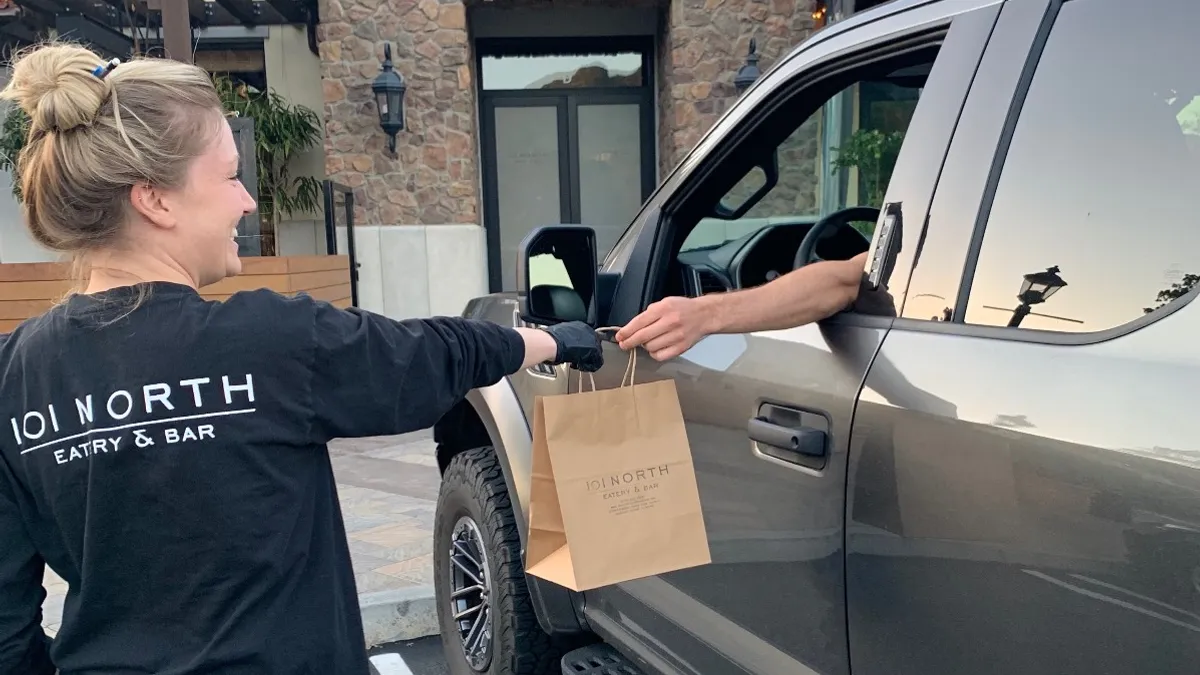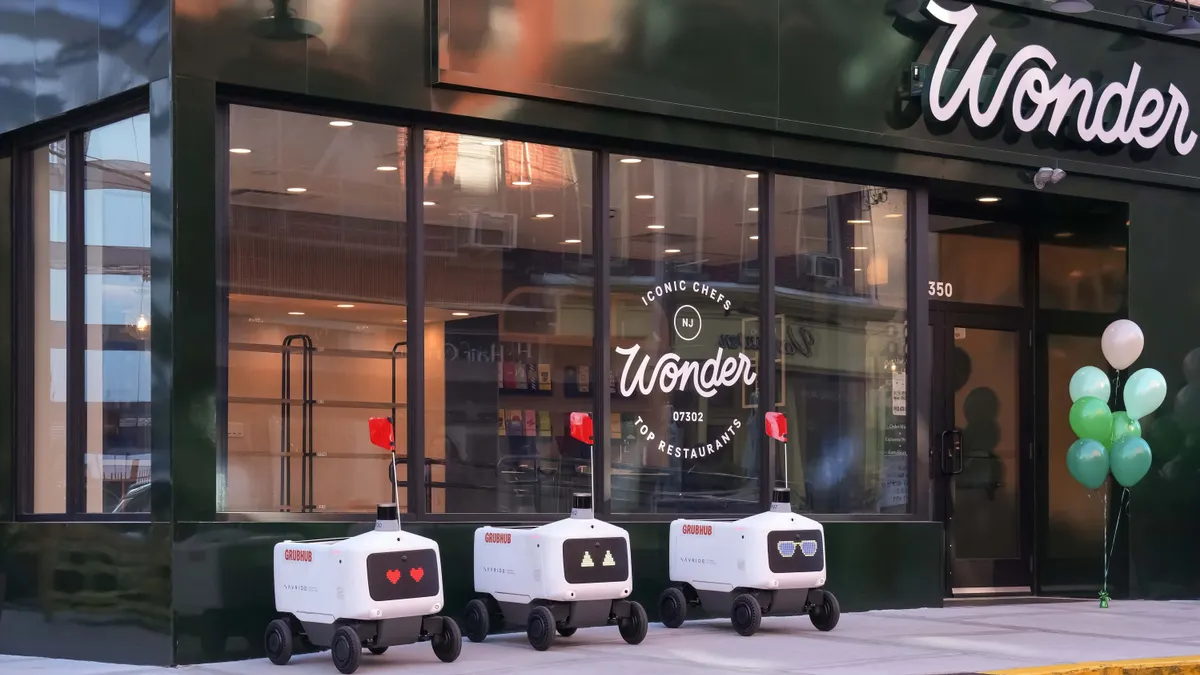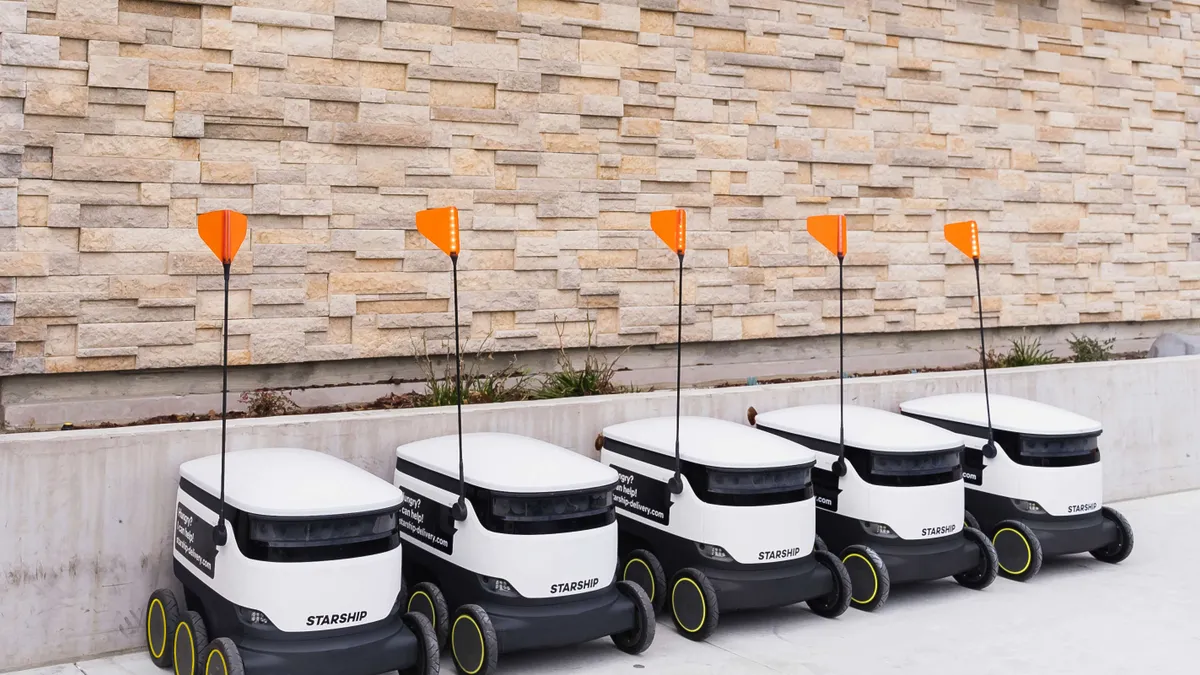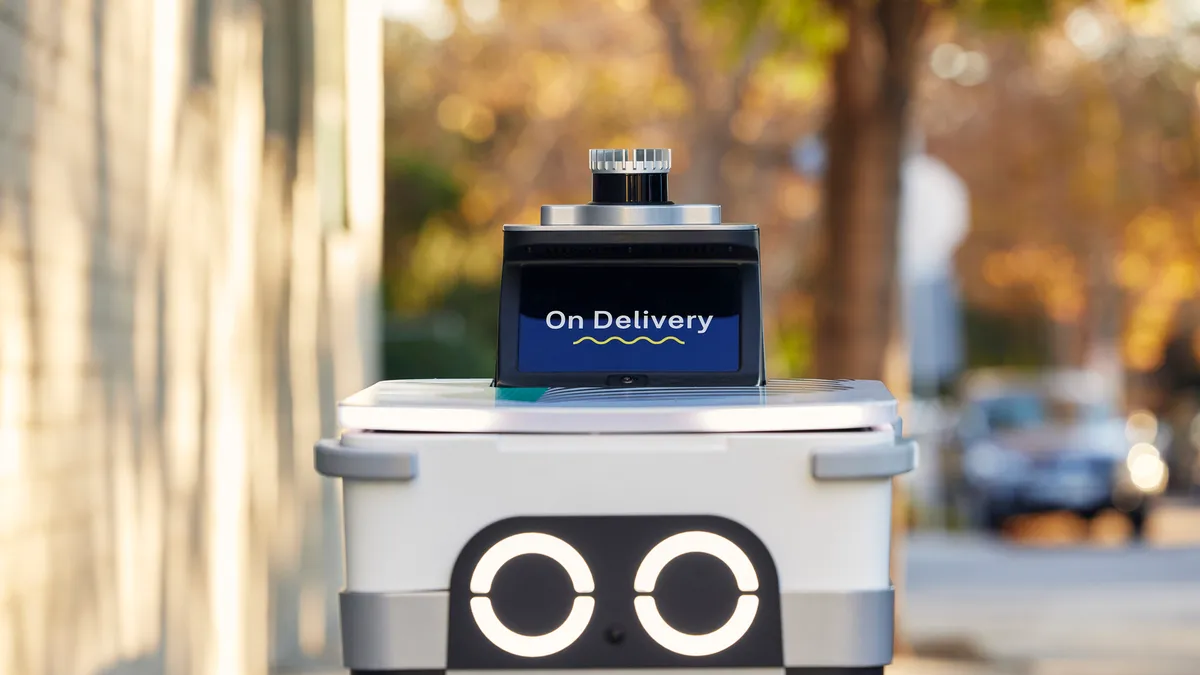As part of our coverage on the impact the coronavirus outbreak is having on the restaurant industry, we will be highlighting different independent restaurants and what they are doing to survive. Have a unique strategy you'd like to share with us? Email us at [email protected].
Sometimes a customer will make a phone call. Other times, the request comes in by email or social media. Does 101 North Eatery & Bar, a restaurant in Westlake Village, California, have milk they could buy? What about fresh juices, raw poultry or milk? Staff then reaches out and works directly with them to try and accommodate their needs.
When New York native Chef Anthony Alaimo opened his restaurant two years ago, customer grocery shopping in his kitchen wasn't how he — or any restaurateur — saw his business running. But in the age of COVID-19, he's doing what he can to keep the doors open as dine-in operations have ceased. Shifting some of his operations has also let his company assist those who don’t have the same access to grocery items as he does from his suppliers, Alaimo said.
Over the years, Alaimo has worked in various award-winning restaurants all over the world, including Europe, Asia and the U.S. That has included working at the Bellagio Hotel’s Le Cirque with Sirio Maccioni and creating an Italian restaurant with Steve Wynn in Macau, China, where he earned a Michelin star and multiple Forbes five-star designations, a star rating service from Forbes Travel Guide for hotels, restaurants and spas.
He opened his newest restaurant 101 North about two years ago, receiving high marks from local media for his Italian-centric menu and unique appetizers, like Crispy Split Corn and yellowtail tartare.
But the novel coronavirus is redefining what it means to be a success: just survive. State-mandated closures of bars and restaurants have forced full-service operators to switch to off-premise or temporarily shutter. Lacking any revenue, some have been forced to lay off staff so their workers can collect unemployment insurance.
“It has been difficult,” Alaimo told Restaurant Dive in an email. “We have been trying to balance the business side of things with the humanity side. Taking care of our staff is extremely important to us and navigating how to do that under these circumstances has been challenging.”
The restaurateur’s main goal has been to find new creative profit centers to make sure staff can stay employed and the lights can stay on. That has meant adding delivery, curbside service, takeaway cocktail packages and beer and wine for delivery. It has also been acting like a middle man to provide customers with access to its kitchen to shop for essentials, Alaimo said. The restaurant has the capability to use its vendor partners to provide dry goods and essential foods, he said.
“As a company, we need to maintain our composure and allow ourselves to think outside the box,” Alaimo said. “Though this is a difficult time, we need to look at it as an opportunity to grow our business long-term through things like offsite catering, delivery, etc.”
With its dining room closed, the restaurant has shifted staff to do more maintenance, cleaning and improvements to retain as many workers as possible. He anticipates that as delivery and pickup grow, the restaurant will be able to bring in even more employees. Other workers are on standby for delivery as well, and 101 North is allowing its employees to keep all service charges and tips, he said.
The company didn’t offer delivery prior to the crisis, nor was it on any delivery platforms, but it was able to quickly pivot to self-delivery. A lot of the staff already had experience in off-premise and delivery from previous jobs and leveraged that expertise as the restaurant developed this channel, Alaimo said.
With so many other restaurants applying to be on delivery platforms it is taking longer for restaurants to go live on third-party platforms, which is why creating an in-house delivery program was on the top of 101 North’s list, Alaimo said. While he doesn’t know exactly how long it will take to go live, delivery platforms are estimating a three to five business day wait, Alaimo said.
Alaimo also adjusted the restaurant's menu pricing and is offering more lunch menu items and modifying its hours to accommodate lunch and dinner services. It previously was open only for dinner and Sunday brunch and closed Mondays. It’s now open daily from 11:30 a.m. to 8 p.m. Its menu, which includes wood-fired pizza, salads, starters and a mix of entrees from pasta to wraps and kebabs, also includes a full bar and wine menu available for takeout.
As the call to more strictly quarantine intensifies, the restaurant has experienced an increased demand for alcohol and is working to bring a piece of its bar program to guests’ homes, Alaimo said.
Offering takeout alcohol will become a bigger focus for many restaurants, not just 101North, since more states are relaxing regulations. In California, the Alcoholic Beverage Control lifted restrictions to allow restaurants to sell alcohol with food as long as drinks are in containers with secure lids. Nick Konokas, co-owner of the restaurant Alinea in Chicago, said on Twitter on last Wednesday that he’s already sold $5,600 worth of Margarita Kits, for example.
In addition to offering takeout wine and beer, 101 North created five cocktail kits of various drinks created by its in-house mixologist, according to a press release emailed to Restaurant Dive. They include cocktail kits for The Lovely Loon, Old Fashioned, The Mojito, Red Sangria and a Margarita Kit. Each of these kits includes ingredients and instructions to make the cocktail at home, including a full bottle of alcohol itself. The kits are priced at $40, with Red Sangria priced at $30.
“As an industry we just need to be creative and look for new and different ways to drive revenue,” Alaimo said. “Survival will require swift and smart business decision making in addition to employee retention.”




















